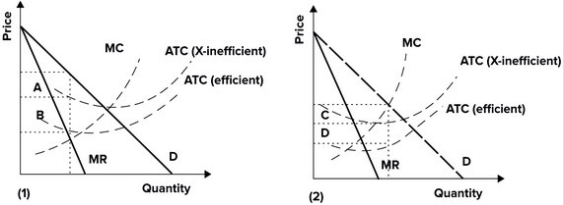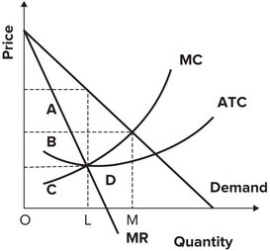Exam 16: Real-World Competition and Technology
Exam 1: Economics and Economic Reasoning121 Questions
Exam 2: The Production Possibility Model, Trade, and Globalization111 Questions
Exam 3: Economic Institutions144 Questions
Exam 4: Supply and Demand151 Questions
Exam 5: Using Supply and Demand136 Questions
Exam 6: Describing Supply and Demand: Elasticities176 Questions
Exam 7: Taxation and Government Intervention169 Questions
Exam 8: Market Failure Versus Government Failure160 Questions
Exam 9: Comparative Advantage, Exchange Rates, and Globalization107 Questions
Exam 10: International Trade Policy82 Questions
Exam 11: Production and Cost Analysis I160 Questions
Exam 12: Production and Cost Analysis II129 Questions
Exam 13: Perfect Competition137 Questions
Exam 14: Monopoly and Monopolistic Competition231 Questions
Exam 15: Oligopoly and Antitrust Policy111 Questions
Exam 16: Real-World Competition and Technology86 Questions
Exam 17: Work and the Labor Market130 Questions
Exam 18: Who Gets What the Distribution of Income100 Questions
Exam 19: The Logic of Individual Choice: the Foundation of Supply and Demand134 Questions
Exam 20: Game Theory, Strategic Decision Making, and Behavioral Economics76 Questions
Exam 21: Thinking Like a Modern Economist67 Questions
Exam 22: Behavioral Economics and Modern Economic Policy87 Questions
Exam 23: Microeconomic Policy, Economic Reasoning, and Beyond111 Questions
Select questions type
Refer to the graphs shown.  The maximum profits that an efficient monopolist that produces a profit-maximizing quantity could earn is best shown by the area:
The maximum profits that an efficient monopolist that produces a profit-maximizing quantity could earn is best shown by the area:
(Multiple Choice)
4.9/5  (31)
(31)
In natural and platform monopolies, economists argue that regulation:
(Multiple Choice)
4.8/5  (35)
(35)
Refer to the following graph.  Suppose this diagram represents a monopolist with a patent. What is the maximum the monopolist would be willing to spend to defend its patent?
Suppose this diagram represents a monopolist with a patent. What is the maximum the monopolist would be willing to spend to defend its patent?
(Multiple Choice)
4.8/5  (31)
(31)
Suppose a lazy monopolist's fixed costs are higher than the fixed costs of an efficient monopolist. In all other respects the monopolists are the same. Which of the following statements about this lazy monopolist is true?
(Multiple Choice)
5.0/5  (32)
(32)
For years, Amazon.com, which began as an Internet bookseller, had no profits and was incurring annual losses. Still, the stock market valued the company very highly. One reason for this was that investors believed that:
(Multiple Choice)
4.8/5  (34)
(34)
In a natural monopoly, and in platform monopolies that have natural monopoly elements, the average cost:
(Multiple Choice)
4.8/5  (28)
(28)
Showing 81 - 86 of 86
Filters
- Essay(0)
- Multiple Choice(0)
- Short Answer(0)
- True False(0)
- Matching(0)